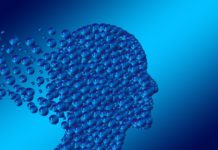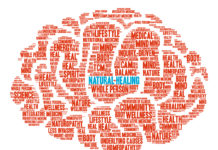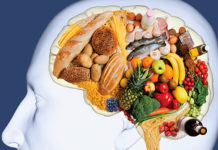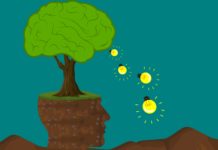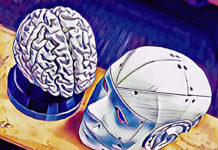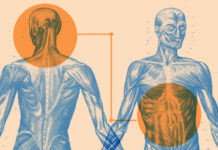How Does Mindfulness Work?
A new study explores how mindfulness impacts self-compassion and meaning in life to increase mental health and wellbeing.
Can a Conceptual Competence Curriculum Bring Humility to Psychiatry?
Training for conceptual competence in psychiatry provides a new way forward to address theoretical and philosophical issues in mental health research and practice.
Reimagining Healthcare
The conventional Western classification systems of health conditions are based on flawed science shaped by reductionist, hierarchical, and profit-driven ideologies. THEN wants to create a new paradigm built upon principles drawn from systems science, the life course perspective, developmental neurobiology, and other evidence-informed studies.
To Live and (Almost) Die in L.A.: A Survivor’s Tale
After 25 years of chronic emergency, 22 mental hospitalizations, a stint at a “community mental health center,” 13 years in a "board & care," repeated withdrawals from addictions to legal drugs, and a 12-year marriage, I plan to live every last breath out as a survivor, an advocate, and an artist.
Growing Research Connects Nutrition and Mental Health
A new article reviews studies in the field of nutritional psychiatry and how nutrition can prevent and treat mental health issues.
Psychiatry in Need of “Fundamental Rethinking”
Prominent researchers in psychiatry urge the field to move away from a rigid biological focus toward social and psychological perspectives to meet the needs of today’s world.
Non-Medical Treatments for PTSD Effective, Study Suggests
Group-based MBSR and PCGT therapies effective as a complementary treatment for PTSD.
A Blueprint for an ‘Ecosocial’ Person-Centered Psychiatry
New article pushes for a shift from a psychiatry centered on brain circuitry toward an 'ecosocial' view of mind, brain, and culture.
Reforming Schools to Prevent Mental Health Issues
New research explores the use of broad-based school-integrated resiliency and mindfulness interventions to prevent mental health concerns before they occur.
A Biopsychosocial Model Beyond the Mind-Body Split
Can a renewed biopsychosocial approach, grounded in an updated philosophy, foster person-centered medicine, and psychiatry?
Yoga and Mindfulness Benefit Youth with Autism Spectrum Disorder
A new review finds preliminary evidence for yoga and mindfulness-based interventions for youth diagnosed with Autism Spectrum Disorder (ASD).
The Answers in the Attic: A Mother-Daughter Story of Overmedication and Recovery
In 1959, my mother suffered what people referred to as a nervous breakdown after my sister’s birth. I puzzled over why Mom never recovered, until I found Dad’s collection of medical records in my sister’s attic. How could anyone give a nursing mother with three small children so many drugs in such a short period of time?
Snapshots of Spring: Journeying Off Psych Meds After 20 Years of Compliance
My prayer to be taken out of my misery was answered, just not the way I used to envision. I managed to escape the system and here I am in the same lifetime, alive and well. I’m slowly getting acquainted with this new setup and am eternally grateful for yet another opportunity at life, which I hope does not slip through my fingers.
More Physical Activity-Based Mental Health Interventions Needed in Schools
What physical activity-based programs are being implemented in schools, how are they being researched, and what kind of impact have they made?
There is More to Mindfulness than the Brain
According to Lifshitz and Thompson, mindfulness is best understood as “complex orchestration of cognitive skills embodied in a particular social context.”
Green Space in Childhood May Protect Against Adult Mental Health Issues
A new study suggests proximity to green space as a child is linked to lower rates of mental health issues in adulthood.
New Evidence for Brain-Gut Link in Depression and Quality of Life
The first ever population-level study of the brain-gut connection in humans finds evidence for a link between gut bacteria and mental health.
Non-Pharmacological Interventions More Effective For Health in Schizophrenia
Review compares the effectiveness of pharmacological and non-pharmacological interventions for improving physical health outcomes in people diagnosed with schizophrenia.
Philosophers Challenge Psychiatry and its Search for Mechanisms of Disorder
Attempting to locate the mechanisms of psychiatric disorder is a step in the wrong direction and fails to challenge potentially unjust social practices.
Increasing Physical Activity in Schools May Improve Mental Health
A new article suggests integrating physical activity throughout the day may help to address the mental health of students.
Large Rigorous Study Debunks Popular Gene-Environment Theory of Depression
A large and rigorous meta-analysis fails to find support for the gene-environment interaction theory of depression.
Treated Infections in Childhood Linked with Later Mental Health Service Use
Severe infections requiring hospitalizations increased the risk of hospital contacts due to mental disorders by 84% and the risk of psychotropic medication use by 42%.
Integrating Indigenous Healing Practices and Psychotherapy for Global Mental Health
As the Global Mental Health Movement attempts to address cross-cultural mental health disparities, a new article encourages integrating traditional healing practices with psychotherapy.
Research Progresses on Mindfulness Based Interventions for Adolescents
A new meta-analysis analyzes randomized control trials of Mindfulness-Based Interventions for adolescents.
Mindfulness and Complex Trauma: The Rewards and the Risks
What media hype and those selling mindfulness don’t tell you is that mindfulness is a process that can radically transform you, and it’s not always safe, nor is it easy or straightforward. We make it safer by being aware of the risks and learning to listen to our own bodies about when it is or isn’t okay for us. No one else actually knows.


